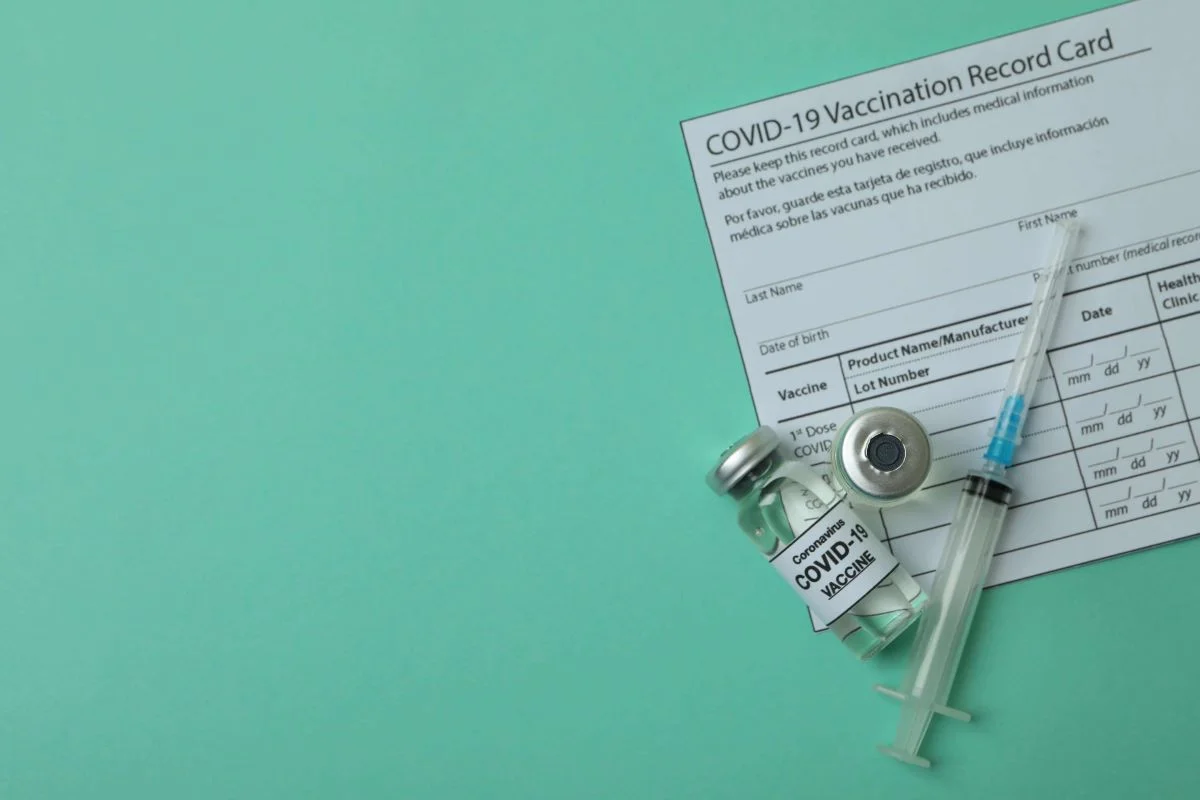These days, your vaccine card can be just as important as submitting the requirements or documents for that RFO house and lot you want. But how important is that piece of paper? Do you have to carry it everywhere you go? What happens if you lose it? Let’s find out.
The Uses of Your COVID-19 Vaccine Card
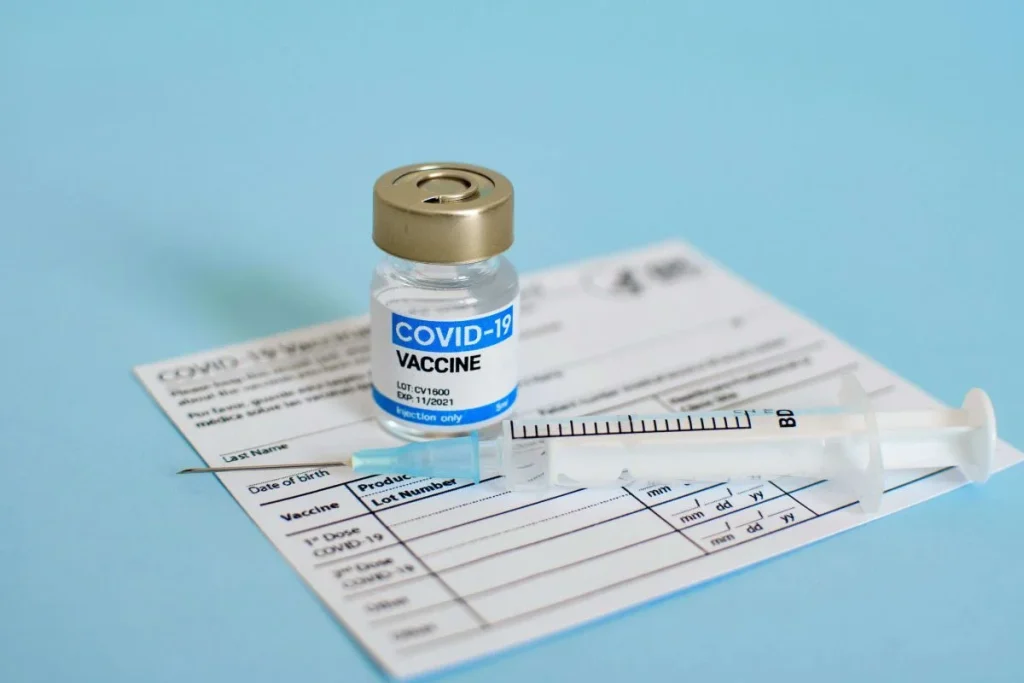
Your vaccination card is one of the most useful health records that you should always have with you in this COVID climate. Especially with the rising number of daily cases in the Philippines, certain protocols will require all of us to have proof of vaccination before we can live as normally as we can. Here are some of the uses of your vax card (as of writing):
The Card Serves as Proof of Your Vaccination Against COVID
Any vaccine you have received in your lifetime should have some sort of documentation. This is the standard process so that you or your kids have a record on file that may be needed in case of hospitalization and other events. In some cases, schools require proof of immunization before a child can enroll to protect kids from diseases that spread easily in their age group.
Just like other vaccines, your COVID vaccination card is your documented proof. Although, sometimes an establishment will ask for a valid ID to prove that the vaccine card is yours.
The Card Contains Important Information About You and the Vaccine You Got
Vaccine cards generally include your basic personal information, including your name, date of birth, address, age, vaccine card number, and the vaccine you received. It also includes that specific shot of the brand you were given called the lot number, which is essential in tracking serious events that may happen to you with respect to the vaccine.
For example, if you had a severe side effect that is different from the usual ones, this may be associated with the specific lot number that you received.
Moreover, while the brand of vaccine you received isn’t necessarily important, your vaccine card shows you the brand and date of when you were vaccinated. This can be used as consideration when you want to get a booster shot. The LGU or organization where you want to get the booster needs this information because the World Health Organization (WHO) and Centers for Disease Control and Prevention (CDC) have some guidelines on what vaccines can be mixed for boosters and when you can take them.
The Card Serves as a Reminder
Speaking of the date when you were vaccinated, if you have a two-dose shot, like Moderna, Pfizer, AstraZeneca, and others, the card will serve as your reminder of when you’ll receive your next dose. Moreover, this can also tell you if you’re eligible for a booster shot since those are needed at a certain point after you received your second dose (or your first dose if you had Johnson & Johnson’s, Janssen.
The Card Can Be Used to Gain Access to Events and Travel
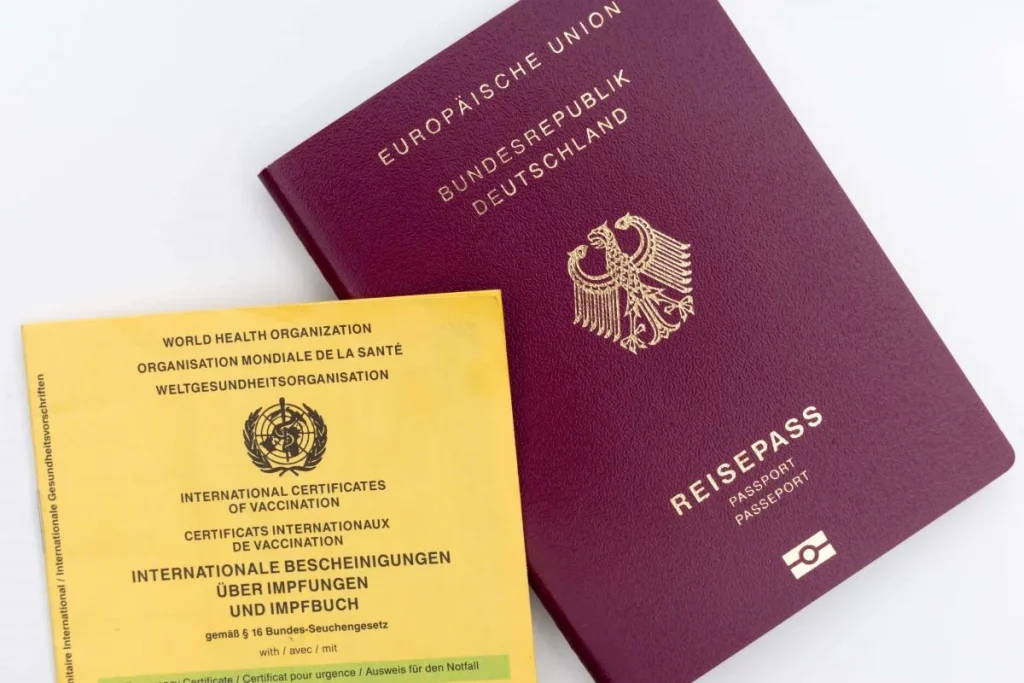
Probably one of the most important — if not the most — use of your vaccine card is it gives you access to certain privileges that include going to establishments, events, and travel. Some countries even have vaccine requirements for college students.
If you haven’t been going out since the pandemic started, restaurants have been open for quite a while now. However, as cases rise, almost all of them now require a vaccine card before anyone can enter. The same goes for some malls and other establishments that are usually enclosed or air-conditioned. You can, although, still dine in if the restaurant offers al fresco dining.
As for travel, you might get away with roaming around the area of that RFO house and lot you’ve been dying to move into, but you can’t go anywhere else far, especially for cities or provinces under Alert Level 3.
Even before the rise of cases because of the Omicron variant, overseas travel has been reserved only for people with the vaccine. Other countries have their own specific rules, but most (if not all) of them require proof of vaccination before you can enter their borders.
Meanwhile, here in the Philippines, you can’t travel to tourist destinations like Baguio, La Union, or Cebu if you don’t have proof of vaccination or at least a recent negative RT-PCR test result. But really, you shouldn’t risk going on vacation to tourist spots if you haven’t been vaccinated. Other than Baguio City and other places mentioned, there are ongoing strict rules for entry on other cities and major tourist spots as well.
In recent news, the Department of Transportation of the Philippines (DOTr) announced a “no vaccine, no ride” policy that was effective since last January 17, 2021, but was recently reinforced this January 2022.
You’re lucky if you don’t really commute anywhere, but this affects quite a lot of people, so you’d understand that there have been a lot of complaints from people who don’t have access to the vaccine. Some even questioned the policy’s legality, but according to DOTr, the policy is legally valid because they have the authority to issue the regulation. They also said that a citizen’s right to ride needs to be in balance with their responsibility as transportation regulators to maintain safe travel.
On the bright side, the DOTr did say that if NCR scales back down to Alert Level 2, the “no vaccine, no ride” policy will be lifted.
How to Take Care of Your Vaccination Card
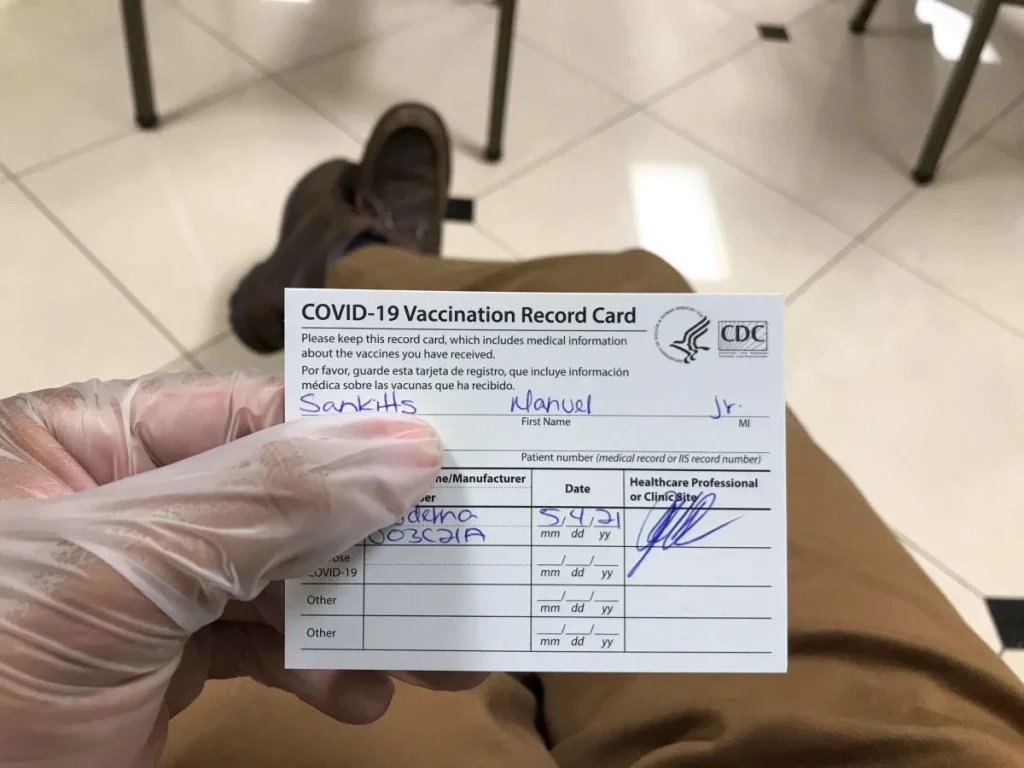
Now that you know how important your vaccine card is, the next thing you should know is how to take care of it. Here are some things you should do:
Skip Lamination
There have been mixed comments about laminating your vaccination card. For the most part, a lot of people have already laminated their vaccination cards. It does kinda make sense since laminating can preserve paper and even printed pictures.
However, one downside of laminated paper is that the plastic used for it becomes adhesive because of the heat applied to it. This makes the paper difficult to remove if your protective laminate gets old and worn out. Not to mention, if not done correctly, removing paper inside the laminate can damage the information written on your vaccination card.
One good alternative for lamination is vaccination card holders that look like typical plastic ID holders. They are easily replaceable, and you can pick colors that you like. Unfortunately, the Philippines doesn’t have a unified size of vaccination cards. So, it may be difficult to find a holder if you have a larger vaccine card.
Have a Backup Copy
Just as you’d have backup copies of the documents for your RFO house and lot, you should also have one for your vaccine card.
Right now, there is no mandate that prevents you from printing scanned copies of your vaccination card. After all, most establishments just need to see if you’ve been vaccinated. Plus, having backup copies is perfect in case you lose the original copy of your card. This also makes even more sense if you have kids in the house, and they accidentally ruin a vaccination card or lose theirs.
Take a Photo
If you want full protection of your vaccine card, don’t bring it out. Instead, you can take a photo using your phone and use that to enter events and establishments since they allow it. However, some restaurants will ask for a valid ID to support the photo.
Problems with the Vaccine Card Around the World
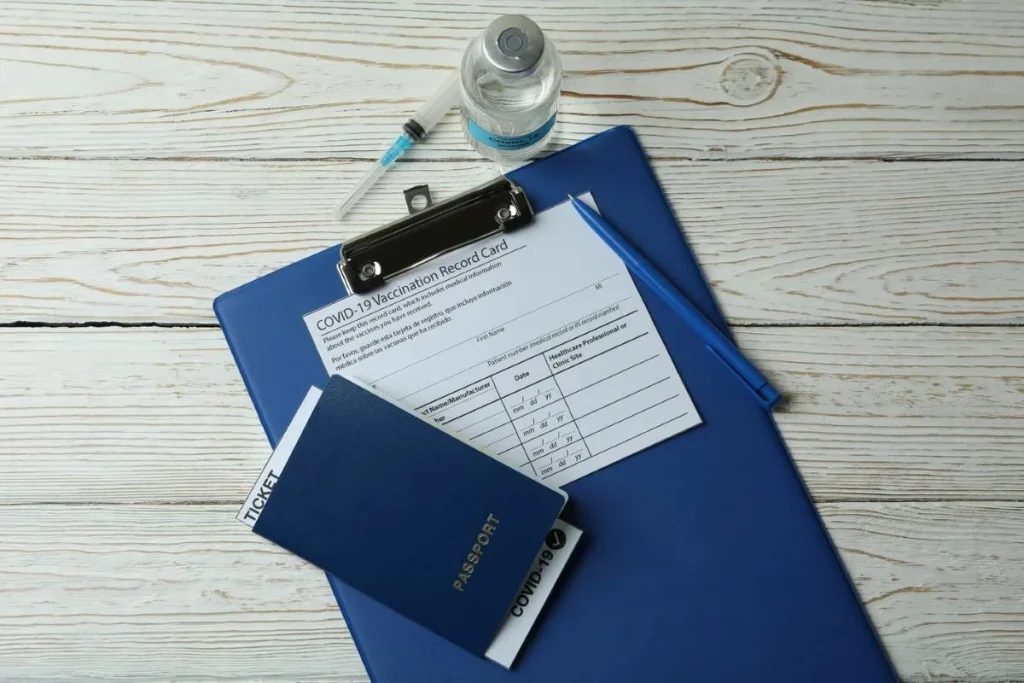
Since the COVID vaccine is probably the first vaccine to have an easy carry card, you can expect people to have complaints about it. You might be surprised that your complaints are also experienced by other people in other countries.
They’re the Wrong Size
One of the biggest issues about vaccine cards is their size. In fact, there are articles written just about these cards having the wrong size, including some from The Atlantic. Writer Amanda Mull said that she was either going to lose it or destroy it because the vaccine card was too big to fit in her wallet.
However, this size issue in America isn’t as big as it is here in the Philippines since the CDC issues their cards. Here, the size of the vaccination card depends on where or what organization you got your vaccine. If you’re lucky, your LGU has a wallet-sized vax card you can easily carry around. Otherwise, you’re forced to carry a large piece of card in your bag.
Many Families Lose Their Vaccination Cards
If you’re one of those people who have lost their vaccine cards at least once, you’re not alone.
According to a commentary published in the Journal of Human Vaccines and Immunotherapeutics, only 20.7% of families in the Democratic Republic of Congo and 69.2% in South Africa were able to find their vaccine cards and give them to researchers. Meanwhile, in some countries like Indonesia, 30.9% of vaccinated individuals did not show their cards, which is a possible indication that they lost them.
Because of this, parents are urged to have a safe, secure, and easily accessible place in their homes for the vaccination cards of their children — or any record of their past vaccines for other diseases. If you’re moving to your new RFO house and lot, don’t forget to bring this with you.
No National Database That Records Vaccine Shots
According to the Wall Street Journal, the United States currently lacks a central database for immunizations because of privacy concerns. Unfortunately, this has led to the cards being the only record of citizens of their shots.
Meanwhile, here in the Philippines, since there is no unified format of vaccine cards, you still need to have your card verified through VaxCertPH (managed by the Department of Health and Department of Information and Communication Technology) to request a certification. This certification is also one of the main requirements before you can leave the country.
If you had your vaccine through an LGU, certification may run smoothly. Unfortunately, there have been reports of errors in data from VaxCertPH. According to the Inquirer, one of the causes of delays is the backlog in data transmission by the organizations handling the vaccination.
The next logical step is to transition to digital documentation of your vaccine certificate. The World Health Organization published guidance on the technical requirements for issuing digital certificates for COVID vaccines last August 27, 2021. The organization said that implementing digital documentation will allow countries the best possible flexibility to solve the problem.
Black Market for Fake COVID Vaccine Cards
According to US News, the black market for fake COVID vaccination cards has been flourishing since the Delta variant spread. The reason? People across the world want to go around restrictions related to vaccination status.
In early 2021, the report said that fake certificates were sold mainly on the dark web. Now, fake cards are sold through apps like Telegram and WhatsApp.
Meanwhile, fake vaccination cards aren’t the only type of forgeries being done. According to an Interpol spokesperson in the same US News report, they are seeing an increase of people who are attempting to travel with fake negative COVID test results, with examples provided from Africa, Europe, and Thailand.
Furthermore, as events and parties start to reopen, students across the United States have been targeted by sellers of fake vaccination cards. So, if you’re a parent, you have to be vigilant about where your kids go.
Other Frequently Asked Questions about the Vaccination Card
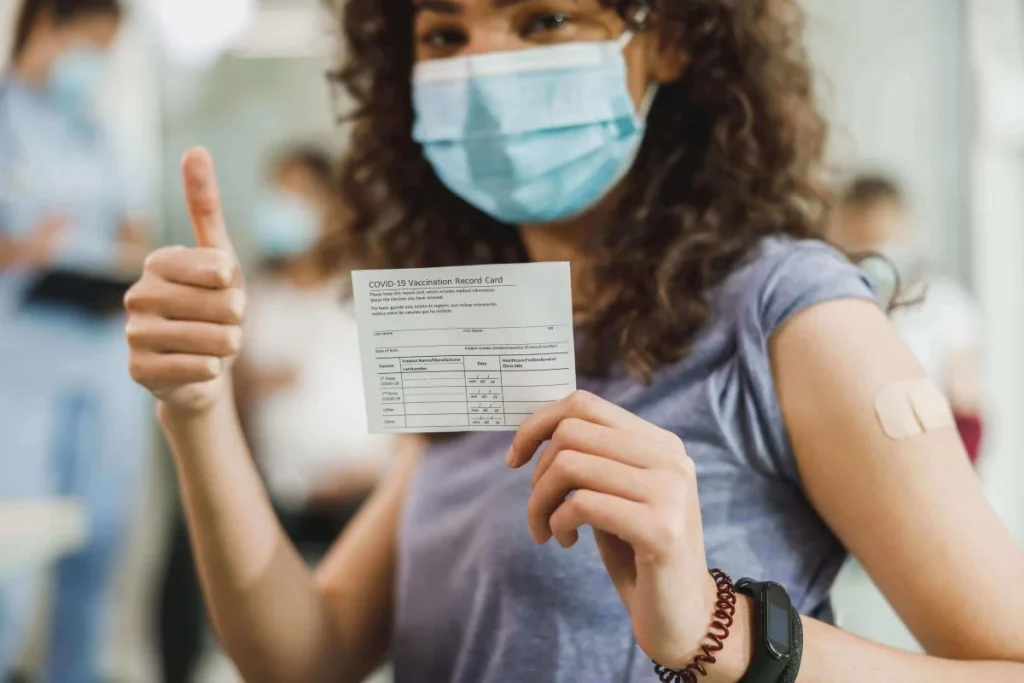
In case we haven’t answered some of your questions about your vaccine card, here are some FAQs:
What Should I Do if I Lose My Card?
The information about your COVID vaccine should be available in the health records of your vaccine provider. So, you can visit their nearest location or message them in case you lose your vaccine card. Losing your card is also one of the biggest reasons why you should have either printed copies or at least a photo of it on your phone.
Will We Need to Show Proof of Vaccination for School?
According to the CHED Executive Director Cinderella Benitez-Jaro last December 1, 2021, only fully vaccinated students can join limited face-to-face classes. Hence, having proof of vaccination will most likely be a requirement.
Can I Post My Vaccine Card on Social Media?
If you want to share your vaccination status on social media, you should avoid posting a photo of your card. It contains personal information that can be used for identity theft. Worse comes to worst, people might even know where you live.
Related Blog: Your Complete Guide on Getting a Booster Shot


